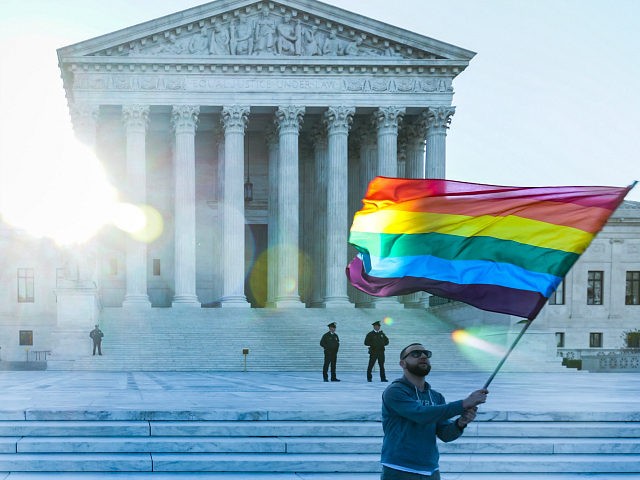Catholic League president Bill Donohue blasted this week’s Supreme Court decision in Bostock v. Clayton County, saying the majority opinion written by Justice Neil Gorsuch rests on “flawed anthropology.”
The court’s assertion that an “individual’s homosexuality or transgender status is not relevant to employment decisions” is manifestly false, Dr. Donohue contends, as is the following claim that “it is impossible to discriminate against a person for being homosexual or transgender without discriminating against that individual based on sex.”
In the decision, Gorsuch makes the “remarkable claim that to discriminate against a person based on his sexual orientation or gender identity is to discriminate against him on the basis of his sex,” despite the fact that Gorsuch also notes that sex is not the same thing as sexual orientation or gender identity.
In his statement, Dr. Donohue draws from the written dissent of Justice Samuel Alito, where the latter dismantles several hypothetical cases put forward in the majority opinion, including one where an employer fires a female employee after learning at a party she has a female lover.
“This example disproves the Court’s argument because it is perfectly clear that the employer’s motivation in firing the female employee had nothing to do with that employee’s sex,” Alito writes. “At the party, the employer learned something new, her sexual orientation, and it was this new information that motivated her discharge.”
“Here is where Gorsuch’s problem lies. Sex is a biological attribute that is not identical to sexual orientation or gender identity,” Donohue argues.
“Being a male or a female is similar to being black or white: sex and race have no inherent normative content,” he states. “That’s because they are fixed properties and do not speak to behavior, which has moral consequences.”
“Sex, or being male or female, is behaviorally neutral; it is not oriented toward anything,” he continues. “Sexual orientation is: it is oriented behaviorally towards either heterosexuality or homosexuality.”
“Indeed, it is precisely because homosexuality is not identical to sex that virtually all of the world’s great religions, in western and eastern civilization, have passed judgment on its practice, without passing judgment on the sex of the participant,” he continues. “The two concepts are distinct and do not ineluctably bleed into each other, despite what Gorsuch claims.”
In the case of gender identity, anatomical surgery and hormone therapy are choices, unlike one’s sex, he argues, “making it erroneous to conflate sex with gender identity.”
Even the language employed by Alito and Gorsuch to refer to the sex of a newborn is different, Donohue notes, which explains why their legal reasoning differs.
While Alito repeatedly speaks about an individual’s “sex assigned at birth,” Gorsuch speaks of individuals being “identified” as male or female at birth.
“Gorsuch refuses to employ ‘assigned at birth’ because it would undercut his conviction that sex is a fluid concept,” Donohue states. “He wants to advance the notion that our sex is a matter of identity, which is a psychological construct, and not a matter of human nature.”
“Most Americans want separate sports teams and restroom facilities for men and women,” Donohue writes. “They understand basic differences based on sex and do not appreciate elites who say they are wrong.”
The Bostock ruling will also have consequences for Catholic institutions, Donohue argues.
While there are “no known cases where a Catholic school has fired a teacher because he happens to be a homosexual,” he declares, “there are many cases where a homosexual teacher has been fired after it was publicly disclosed — often by the teacher — that he is married to his boyfriend.”
“Activist lawyers will now test the limits of this Supreme Court decision,” he warns.
“Gorsuch’s majority opinion, which is based on bad anthropology, makes for bad law and will now make for bad public policy,” he concludes.

COMMENTS
Please let us know if you're having issues with commenting.